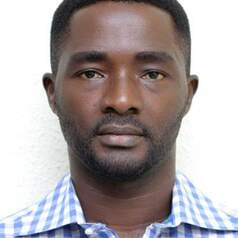
Ediomo-Ubong Nelson
Africa research project coordinator, Global Drug Policy Observatory, Swansea University
Ediomo-Ubong Nelson is an associate researcher with the Centre for Research and Information on Substance Abuse, Nigeria.
He is also Africa research project coordinator at the Global Drug Policy Observatory, Swansea University, UK. His research covers substance use, sex work, criminal justice and public health.
His works have appeared in The International Journal of Drug Policy, Contemporary Drug Problems, Global Public Health and Journal of Drug Issues.
Less ![]()
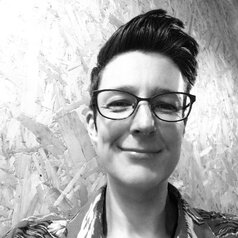
Edith England
Senior Lecturer in Social Policy and Practice, Cardiff Metropolitan University
I am a Senior Lecturer in Social Policy and Practice at Cardiff Met, and the Programme Director for the Health and Social Care programme, having completed my PhD at Cardiff Uni in 2020.
I have a third sector background (housing, homelessness and welfare), moving to academia in 2017.
My areas of interest are:
- Homelessness and ‘precarious’ housing / housing insecurity (including squatting, property guardianship, and the private rented sector).
- Neurodiversity and housing, especially ADHD/ autism and housing/ homelessness (currently recruiting for our ADHD/ Autism housing survey here (https://cardiff.qualtrics.com/jfe/form/SV_bHfPaswbBVMjWD4)
- LGBTQ+ homelessness – recently completed the largest UK-based survey to date of LGBTQ+ homelessness.
- Welsh housing and homelessness.
I have published widely within critical social policy, sociology and geography. I am especially interested in using critical theory (e.g. Queer and Crip theory) to understand and address issues within social policy.
I am also involved in running the Queer Populations and Policies Network
(https://sites.google.com/view/qpapnetwork/about-qpap).
Less ![]()
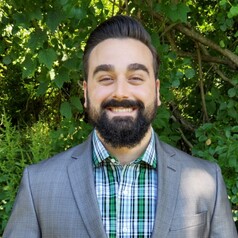
Ediz Ozelkan
Lecturer of Media Studies, University of Colorado Boulder
I graduated from the University of Colorado Boulder in 2023 with my PhD in media research and practice. My dissertation asks if music streaming services helped or hurt economic opportunities for music professionals, using a political economic lens and quantitative methods to measure the impact of technology on opportunity in media. This project is being reworked into a book-length manuscript. I also have an M.A. in American Studies from Columbia University and a B.S. in sociology from SUNY Old Westbury. My research has ranged from cultural sociology; hip hop and music studies; political economy; media and labor economics; and pedagogy.
Less ![]()

Edlin Veras
Visiting Assistant Professor of Sociology and Black studies, Swarthmore College
My name is Dr. Edlin Veras. I am a Visiting Assistant Professor of Sociology and Black studies at Swarthmore College where I conduct research on and teach about anti-Blackness, and migration in the US and Caribbean. I earned my PhD in Sociology with a specialization in Latin American and Caribbean Studies from the University of South Florida in 2021. My work has been supported by the American Sociological Association Minority Fellowship Program. I have been actively engaged in research on Haitian migrants and their descendants in the Dominican Republic since 2017. I have been published in the Sociology of Race and Ethnicity, and am currently finishing my book manuscript on Haitian Migrant Laborers in Dominican Republic’s northern coast.
Less ![]()
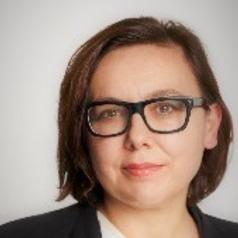
Edlira Shehu
Professor of Digital Marketing, University of Groningen
Edlira Shehu joined the Department of Marketing at RUG in February 2023. Previously, she worked in Universities in Denmark and Germany. Edlira obtained her PhD and her state doctorate at the University of Hamburg, Germany.
Edlira's research focuses on a broad range of topics along three areas: digital advertising, multichannel retailing, and nonprofit marketing. Her research uses quantitative methods to solve empirical problems and has high academic as well as managerial and societal relevance. Her work has been published in leading journals of the field, such as Journal of Marketing Research, the International Journal of Research in Marketing, Journal of Retailing, and Research Policy. She is member of the editorial board of the Journal of Retailing. Prior to joining academia, Edlira worked in different management positions in the field of marketing analytics.
Less ![]()
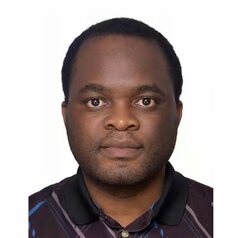
Edmond Sanganyado
Assistant Professor in Environmental Forensics, Northumbria University, Newcastle
Edmond Sanganyado is a highly accomplished environmental toxicologist and a dedicated educator currently serving as an Assistant Professor in the Department of Applied Sciences at Northumbria University. Prior to joining Northumbria University, Dr. Sanganyado was an Associate Professor at the Institute of Marine Science at Shantou University in China, where he also completed his postdoctoral research fellowship. During his time at Shantou University, he was honored with the Outstanding Young Talent Award for his exceptional research contributions to the field of marine science.
Dr. Sanganyado's academic journey began with a BSc (Hons) in Applied Chemistry from the National University of Science and Technology in Zimbabwe. He then went on to pursue his PhD in Environmental Toxicology at the University of California, Riverside, as a Fulbright Scholar. His research focuses on the impact of environmental contaminants on ecosystems, specifically in marine environments.
In recognition of his significant contributions to environmental science and sustainability, Dr. Sanganyado was elected a Fellow of the Institution of Environmental Sciences. His commitment to fostering scientific collaboration and leadership led him to be elected as a member of the Global Young Academy, an organization dedicated to empowering young scientists and scholars from around the world.
Dr. Sanganyado is also passionate about promoting scientific research and education in his home country. As a testament to his dedication, he is currently serving his second term as the President of the Zimbabwe Young Academy of Sciences, where he works to strengthen the capacity of young scientists in Zimbabwe and beyond.
Less ![]()

Edo Richard
Professor of Neurology, Radboud University
Edo Richard is professor of neurology at Radboud University Medical Centre in Nijmegen, The Netherlands and the dept of Public Health at Amsterdam University Medical Centre. He combines patient care with research into the prevention of dementia. He leads several large (inter)national randomized controlled trials on risk factor modification to reduce dementia risk. He also addresses ethical issues in prevention and early diagnosis of cognitive impairment.
Less ![]()
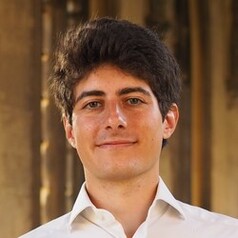
Edoardo Ponti
Lecturer in Natural Language Processing, University of Edinburgh
I am an assistant professor in Natural Language Processing at the University of Edinburgh and a visiting professor at NVIDIA. Previously, I was a visiting postdoctoral scholar at Stanford University and a postdoctoral fellow in computer science at Mila - Quebec AI Institute in Montreal. In 2021, I obtained a PhD from the University of Cambridge, St John’s College. Once upon a time I studied typological and historical linguistics at the University of Pavia.
My research has been featured on the Economist and Scientific American. The main research foci of my lab are:
- Modular deep learning: I am interested in designing neural architectures that route information to specialised modules (e.g., sparse subnetworks). This facilitates systematic generalisation and conditional computation. It also helps control the model’s behaviour, e.g., mitigating its hallucinations.
- Efficient architectures: The goal is to make language models more efficient by compressing their intermediate representations and memory. As a side effect, this also makes them break free from tokenizers and learn hierarchical abstractions over raw data.
- Computational typology: I wish to understand how language varies, across the world and its cultures, with the help of computational tools. Multimodal models in particular give us an powerful tool to study how form depends on grounded, embodied representations of meaning and function.
My research earned a Google Research Faculty Award. I received two Best Paper Awards at EMNLP 2021 and RepL4NLP 2019. I am a board member of SIGTYP, the ACL special interest group for computational typology, a member of the European Lab for Learning and Intelligent Systems (ELLIS), and part of the TACL journal editorial team.
Less ![]()

Édouard Civel
Chercheur au Square Research Center et à la Chaire Economie du Climat, Université Paris Dauphine – PSL
Less ![]()
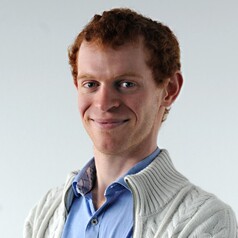
Édouard Mien
Chargé de recherche, Fondation pour les Etudes et Recherches sur le Développement International (FERDI), Université Clermont Auvergne (UCA)
Less ![]()
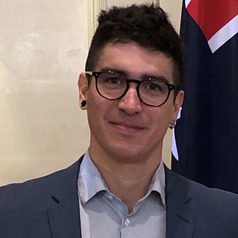
Eduardo Oliveira
Senior Lecturer in Software Engineering, The University of Melbourne
I am a Senior Lecturer in the School of Computing and Information Systems at the University of Melbourne
Less ![]()
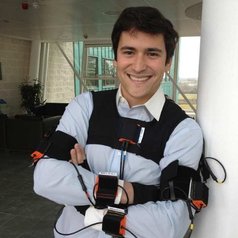
Edudardo Velloso
Eduardo Velloso is a Research Fellow at the Microsoft Research Centre for Social Natural User Interfaces at the University of Melbourne in Australia. Eduardo holds a PhD in Computer Science from Lancaster University and a BSc in Computer Engineering from the Pontifical Catholic University of Rio de Janeiro. His research aims at creating future social user experiences combining novel input modalities such as gaze, body movement, touch gestures, etc. His latest work has investigated eye-based interaction with smart watches, multimodal combinations of gaze, and eye control of video games.
Less ![]()

Edurne Pasabán Lizarribal
Profesora asociada, IE University
Estudió Ingeniería Técnica Industrial en la Universidad del País Vasco. Completó el programa SEP (Senior Excutive Program) en ESADE Business School de Barcelona (2005 – 2006) y, en 2007 obtuvo el Master en Gestión de Recursos Humanos también por ESADE. Posteriormente en 2012 obtuvo el Master Executive Coaching and Management por la IE Business School de Madrid.
Fundó su propio negocio ABELETXE, entonces un pequeño hotel rural y restaurante ahora completamente reformado se ha convertido en un espacio singular dedicado a la celebración de eventos en el País Vasco. Es patrona y fundadora de ‘Mountaineers for Himalayas by Edurne Pasaban’ donde se trabaja por el desarrollo de proyectos relacionados con la educación de los niños y niñas del Himalaya.
Con 18 años en Ecuador comenzó a realizar ascensiones a montañas de 6000 metros y finalmente en 1998 viajó a Himalaya por primera vez. Desde entonces Edurne no ha dejado de realizar diferentes expediciones a montañas de más de 8000 metros, coronando la cumbre del Shisha Pangma en 2010 y convirtiéndose así en la primera mujer en el mundo en ascender los 14 ochomiles del Planeta.
En la actualidad Edurne combina su carrera deportiva con su carrera profesional como conferenciante y coach en empresas tanto nacionales como internacionales. Organiza charlas, formaciones y talleres diseñados a medida, en las que acompaña a equipos y personas, hacia sus propios objetivos a través de sus experiencias como alpinista.
Less ![]()
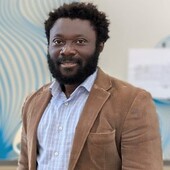
Edward Akuffo
Associate Professor and Department Head, Political Science, University of The Fraser Valley
Less ![]()
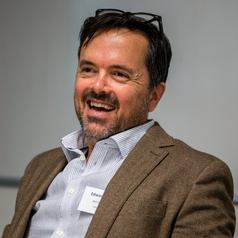
Edward Aspinall
Professor in Southeast Asian Politics, Australian National University
I am a specialist in the politics of Indonesia, and president of the Asian Studies Association of Australia.
Less ![]()
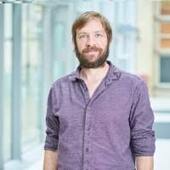
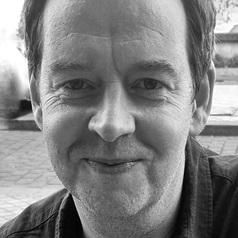
Edward Edgerton
Reader in Psychology, University of the West of Scotland
I am an environmental psychologist specialising in the role of the learning environment in the educational process and environmental design within healthcare and work environments. Recent projects have focused on dementia-friendly design in care homes and identifying and evaluating the impact of new school buildings on students and teachers
Less ![]()

Edward Fox
Associate Professor, Department of Applied Sciences, Northumbria University, Newcastle
Less ![]()

Edward Hanna
Professor of Climate Science and Meteorology, University of Lincoln
Edward Hanna is Professor of Climate Science and Meteorology in the College of Science. He is current lead PI of 3 multi-institute NERC grants, and Lincoln PI of a further NERC grant, with a combined value ~£2.5 million. He serves as Co-Chair of the World Climate Research Programme Climate & Cryosphere (WCRP CliC) project's Scientific Steering Group, and is the WCRP representative on the Ice Sheet Mass Balance and Sea Level (ISMASS) expert group.
Edward received a BSc in Planetary Science (First Class Honours) from University College London in 1995 and completed a PhD in Satellite Remote Sensing of Antarctic Sea Ice and Climatic Couplings at the University of Bristol in 1998. This was followed by postdoctoral research in the Department of Meteorology, University of Reading between 1998 and 2000 before being appointed as Lecturer in Meteorology at the Institute of Marine Studies, University of Plymouth in 2000. In 2003 Edward was appointed as Lecturer in Climate Change at the Department of Geography, University of Sheffield, promoted to Senior Lecturer in 2006, Reader in 2010 and was awarded a personal chair in 2013, serving as Deputy Head of Department 2013-16.
Edward has published >140 research papers in international peer-reviewed journals, including 5 papers in Nature (1 as lead author), 2 in Nature Climate Change, 2 in Nature Communications, 1 in Nature Reviews Earth & Environment as lead author, and 1 in Science. Together his papers have attracted >16,900 citations (H index 61) according to Google Scholar. He was listed in the top 2% of most cited scientists in his research field in a 2020 Stanford University survey. He has led an international team to reconstruct Greenland Ice Sheet surface mass balance, the results of which have been used by the Intergovernmental Panel on Climate Change, on which he was a Contributing Author on their Fifth Assessment Report. He has also contributed as an author to many Arctic Report Cards of the US National Oceanographic & Atmospheric Administration (NOAA). Another key research interest is investigating possible links between Arctic Amplification of global warming and the occurrence of extreme weather in the Northern Hemisphere mid-latitudes. Hanna is a founding member of an international working group on Arctic climate change-mid latitude extreme linkages, led by Dr. James E. Overland of NOAA. As part of his climatological research Edward has developed the concept of the Greenland Blocking Index related to North Atlantic polar jet stream changes, as a key driver of the recently increased Greenland ice melt. Active collaborations include with the Met Office, several other European meteorological institutes, and NOAA.
Edward is a regular organiser of or invited participant in international workshops and conferences, and has given multiple invited lectures in Denmark, Germany, Greenland, Iceland, Norway and the USA. He lead-organised ISMASS international research workshops on ice-sheet mass balance and climate change in Davos, Switzerland, in June 2018, and Reykjavik, Iceland, in August 2022, and co-organised an international research workshop on Arctic-midlatitude climate linkages in Lincoln in Sept. 2023. He also co-led the "Moana Water of Life: Navigating Climate Change for Planetary Health" international conference in Lincoln in Aug/Sep 2019.
Edward is a Fellow of the Royal Meteorological Society and a member of the Climatological Observers Link and maintains a weather station at Newark.
Less ![]()
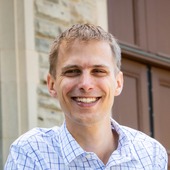
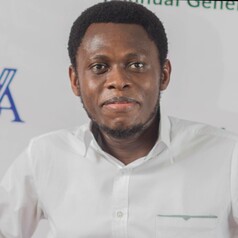
Edward Martey
Senior Research Scientist, Agricultural and Applied Economics, University of Illinois at Urbana-Champaign
Edward Martey (ORCID ID: 0000-0002-6933-3685) is an Agricultural and Applied economist at the CSIR-Savanna Agricultural Research Institute with 12 years of professional experience. He is a visiting Research Scholar at the University of Illinois at Urbana-Champaign and a 2022 Visiting Fellow, Dyson School of Applied Economics and Management, Structural Transformation of African and Asian Agriculture and Rural Spaces (STAAARS+) program. He received his BSc (Agricultural Economics), MPhil (Agricultural Economics), and PhD (Agricultural and Applied Economics) degrees from the University of Ghana and the University of Illinois at Urbana-Champaign, respectively. He is currently the Head of the Social Science and Biometry Section of CSIR-SARI. His research, development, agricultural economics, and operational work cover a range of policy-relevant questions related to poverty, development, and commercialization in Africa. Specifically, his recent research focuses on impact assessment of agricultural technologies, energy, agricultural and rural development, time poverty, and economic valuation using choice experiments.
Less ![]()
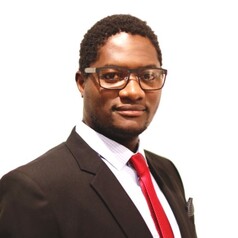
Edward Musole
PhD Law Student, University of New England
Edward Musole is a multifaceted professional with a diverse educational background, encompassing law, business, and writing. Currently serving as a Lawyer in Western Australia, Edward is also pursuing a Ph.D. in Law at the University of New England. With a Master's in Writing from Swinburne University of Technology Australia and a Master's in Business Administration from the University of Zambia, Edward brings a unique blend of legal expertise and strategic management skills to his work. His research interests revolve around the intersection of technology and law, particularly focusing on privacy laws in Australia and the implications of privacy invasive technologies. With strong skills in legal research, analysis, and communication, Edward is poised to make significant contributions to the legal field and beyond.
Less ![]()
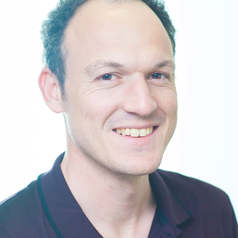
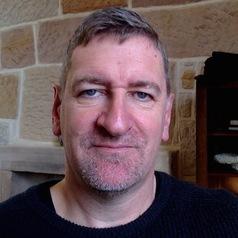
Edward Scheer
Professor of Performance and Visual Culture, Head of School of Art and Design, UNSW Sydney
PHD, Macquarie University
Ba Hons Macquarie and University medalist in Literature.
Member of the Australian Research Council’s College of Experts (2013-2015).
From 2007-2011, President of PSi (Performance Studies international)—the international professional association of performance studies scholars.
Less ![]()

Edward Shepherd
Senior Lecturer in Planning and Development, Cardiff University
My professional background is in planning and development consultancy and I hold professional qualifications from the Royal Institution of Chartered Surveyors and the Royal Town Planning Institute. I also hold a PhD in Land Economy from the University of Cambridge.
Less ![]()

Edward Sosu
Reader and Research Director in the School of Education, University of Strathclyde
Less ![]()
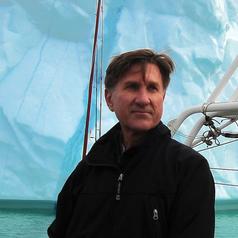
Edward Struzik
Fellow, Queen's Institute for Energy and Environmental Policy, School of Policy Studies, Queen's University, Ontario
I have an undergraduate degree in history from the University of Western Ontario and a Masters of Journalism degree from the University of Western Ontario. I am currently a fellow at Queen's Institute for Energy and Environmental Policy in the School of Policy Studies at Queen's University. I have held that position since 2011.
I have been awarded three year-long fellowships: the Southam Fellowship at Massey College at the University of Toronto in 1986-87;the Knight Science Journalism Fellowship at MIT and Harvard in 1996-1997, and the Atkinson Fellowship in Public Policy in 2006. This award is a collaborative project of the Atkinson Foundation, the Honderich Family and Toronto Star. The focus of my fellowship was a series of articles on how climate change is reshaping the Arctic.
Since 2009, I have been a contributing writer for Yale Environment 360, an international online journal offering opinion, analysis, reporting, and debate on global environmental issues by scientists, journalists, environmentalists, academics, policy makers, and business people. Yale 360 is published by Yale's School of Forestry and Environmental Studies. To view my articles, go to: http://e360.yale.edu/authors/ed-struzik
Since 2016 I have been a member of the Board of Directors of the Canadian Arctic Resources Committee, a citizens' organization dedicated to the long-term environmental and social well-being of northern Canada and its peoples. CARC has been a major voice on Arctic issues for the past 40 years.
I have written five books, four of them on the Arctic. Future Arctic, Fields Notes From A World on the Edge was published by Island Press in Washington D.C. in 2015. I have also contributed chapters to several other books. Two of the most recent are: Reflections of Canada, Illuminating Our Opportunities and Challenges at 150 years, (Peter Wall Institute for Advanced Studies, University of British Columbia, 2017) and It’s All Happening So Fast, which was published in 2017 by the Canadian Centre for Architecture in Montreal.
I have played the role of advisor for the World Wildlife Fund of Canada’s Arctic Program. I was also on one of the selection committees for the International Polar Year conference that was held in Montreal in 2012. The IPY From Knowledge to Action Conference was one of the largest and most important scientific conferences for polar science and climate change, impacts and adaptation. Keynote presentations, thought-provoking panel discussions and workshops involved hundreds of scientists from around the world.
My long list of awards includes the U.S.-based Grantham Prize for environmental writing, the Michener Deacon Fellowship in Public Policy and the Sir Sandford Fleming Medal, which goes to one person each year who has made an outstanding contribution to the understanding of science in Canada.
My articles on the Arctic have appeared in journals such as Foreign Policy Review, Arctic, Conservation Biology, The World Policy Institute’s Arctic-in-Context and Conservation Biology, to name just a few
Less ![]()
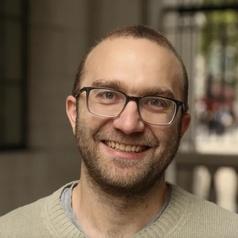
Edward Sugden
Senior Lecturer in American Studies, King's College London
He researches nineteenth- and twentieth-century American literature in its most capacious designations. His first book Emergent Worlds was published by New York University Press in 2018. He edited an essay collection entitled Crossings in Nineteenth-Century American Culture, which appeared on Edinburgh University Press in 2022. He is currently writing a biography of Moby-Dick.
Less ![]()



Edward Yiu
Associate Professor, School of Business, University of Auckland, Waipapa Taumata Rau
Less ![]()
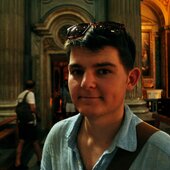
Edward Charles Stewart
Affiliate Researcher/Clyde Valley Archaeological Research Framework Engagement Officer, University of Glasgow
Recent Qualifications
Oct 2020 - Oct 2024 - PhD in Archaeology, University of Glasgow, Dissertation title: ‘Repopulating the Braes: Shieling practice, upland seasonal industries and agricultural practice in post-medieval Scotland’. Supervised by Dr Michael Given, Dr Rachel Opitz and Prof. Sian Jones.
Recent Employment
Clyde Valley Archaeological Research Framework Engagement Officer at Archaeology Scotland (2024 - Present)
Independent Archaeologist (2024)
Excavations Director on the University of Glasgow Glencoe Field School (2023 - Present)
Lead Graduate Teaching Assistant at University of Glasgow (2023-2024)
Research Leave Lecturing Cover at University of Glasgow (2022-2023)
Graduate Teaching Assistant University of Glasgow (2020-2024)
Research
My recent research has focused on settlement, transhumance and the perception and management of upland landscapes in Highland Scotland. In 2021 and 2022 I directed surveys of shieling landscapes in Glencoe, Canna and Mar Lodge, and excavations of shielings and associated features in Glencoe. In 2023 I directed the excavation of the 'Summerhouse of MacIain' and brought to report stage the artefactual assemblages from that site. In 2024 I was co-director of the excavation of the settlement of Achnacon, in partnership with Derek Alexander from the National Trust for Scotland.
Previously I have researched and published on the archaeology of modern and contemporary urbanism, wastelands, edgelands and anti-elite narratives of urbanism in the post-enlightenment city, and the role of prehistoric monuments in contemporary urban landscapes with a focus on their placemaking value and their role as 'timeless' monuments within rapidly changing landscapes.
I have broader interests in post-medieval and contemporary archaeology and am a member of the Society of Post Medieval Archaeology, the International Network for Contemporary Archaeology in Scotland, the Wasteland Working Group, and am a Fellow of the Society of Antiquaries of Scotland. I maintain a broader interest in Scottish Archaeology and have worked on excavations from prehistoric burial monuments to 20th c Tennement sites.
I have also worked extensively on excavations in Central Italy and was Topographer then Chief of Topography on the Gabii Project run by the University of Michigan from 2018 to 2023. In this role was involved in the publication of an article in Antiquity on redefining classical urbanism.
I have also held a variety of short term research assistant and consultant posts on projects on topics from remote sensing and agriculture, to computer learning and archaeological survey, to geophysics of the Antonine Wall.
Less ![]()
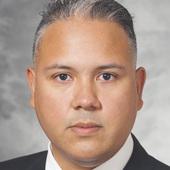
Edward D. Vargas
Associate Professor, School of Transborder Studies, Arizona State University
Less ![]()
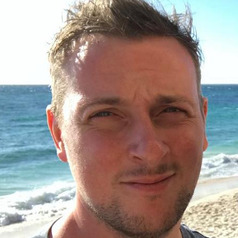
Edwin Burns
Senior Lecturer in Psychology, Edge Hill University
If you think you or someone you know suffers from prosopagnosia/faceblindness (i.e., regular difficulties when recognising faces they should), then please get in touch with me if you would like to be tested for the condition at [email protected]
I’m a psychologist who is interested in vision in those with intact face recognition skills, neuropsychological (i.e., brain damage) and neurodevelopmental (i.e., lifelong problems in certain aspects of cognition) groups. A significant proportion of this work has focused on individuals who suffer from developmental prosopagnosia, a lifelong condition characterised by severe difficulties recognising facial identity. Unfortunately, most of the people who believe they have prosopagnosia will not receive a diagnosis using current approaches to testing. I hope to remedy this through my latest research (Burns et al., 2022). I also do work with aphantasia (people who can't visualise imagery in their mind) and developmental co-ordination disorder (people who have trouble with movement).
I am also interested in how we perceive a face when it is viewed with other faces nearby. This can often lead to a phenomenon called a cheerleader or friend effect, where the presence of others can make us appear more attractive or trustworthy. My recent paper (Burns et al., 2021, Cognition) drew many of these effects together in a framework that will help authors understand the myriad of influences on such phenomena.
Please get in touch with me at [email protected] if you have any questions about my work, or would like to study for a fully funded PhD (open to candidates worldwide). PhD applications are often open near closing dates in January or summer.
Less ![]()
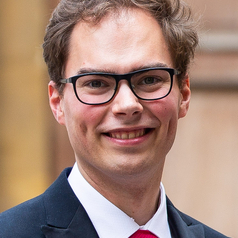
Edwin Dalmaijer
Lecturer in Psychological Science, University of Bristol
Edwin’s research interests are best summarised as the quantitative exploration of development, both within individuals and in populations. Broadly, he investigates how affective and cognitive faculties impact each other, and how they are affected by the environment. Edwin triangulates problems with narrowly focussed experiments aided by computational models of behaviour, with machine learning to find complex patterns in large secondary datasets, and with agent-based population simulations.
Less ![]()
- Market Data























